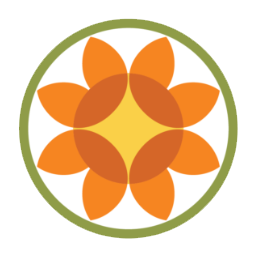Whichever genius came up with the pithy “first do no harm” knew what they were talking about, or at least had a profound understanding what evil could be committed in the cause of “we need to do something!”
From the journal of Clinical Pharmacology 2005 (Apr; 45(4):371-7). Regarding the Origin and uses of primum non nocere–above all, do no harm! The abstract by CM Smith:
“The so-called Hippocratic injunction to do no harm has been an axiom central to clinical pharmacology and to the education of medical and graduate students. With the recent reexamination of the nature and magnitude of adverse reactions to drugs, the purposes of this research and review were to discover the origin of this unique Latin expression. It has been reported that the author was neither Hippocrates nor Galen. Searches of writings back to the Middle Ages have uncovered the appearance of the axiom as expressed in English, coupled with its unique Latin, in 1860, with attribution to the English physician, Thomas Sydenham. Commonly used in the late 1800s into the early decades of the 1900s, it was nearly exclusively transmitted orally; it rarely appeared in print in the early 20th century. Its applicability and limitations as a guide to the ethical practice of medicine and pharmacological research are discussed. Despite insufficiencies, it remains a potent reminder that every medical and pharmacological decision carries the potential for harm.” [the italics are mine.]
So this is the principle on which we should base all of our medical and pharmacological interventions when caring for children, or indeed anyone, regardless of our specialty. Keeping in mind the potential for harm in whatever we do, how do we avoid hurting those whom we long to help?
“Doing no harm” requires a great deal of thoughtfulness and a willingness to examine our own motives as well as the likely outcome(s) we seek. Is it right or wise to prescribe a sleep medication because to do so requires less energy on the doctor’s part than a discussion of sleep hygiene or further exploration of what might be causing the insomnia? Is bariatric surgery—or any major invasive operation—justifiable in an obese child or adolescent, given the lack of good studies and the unknown risks? Just as doctors yield to temptation to quickly prescribe (or operate) rather than slow down and really listen to the patient, so do patients often pressure doctors to give them a prescription for medication the doctor may know is controversial or even contraindicated — such as antibiotics for a bad cold.
So we need introspection and caring to “do no harm” while we march forward trying to incorporate new findings, new treatments and new approaches. Innovation is critical to medical progress. Neither “evidence based medicine” nor “first do no harm” should act to kill innovation. We all want the new cancer treatment, the latest high-tech artificial limb, the most successful fertility treatment, the life-saving transfusion, the new drug for old killers like AIDS, hepatitis C and Alzheimer’s. And without this pressure to find a better way, how could medicine advance?
As I think back on the evolution of Kartini Clinic, if we had not been willing to be creative, to re-think the paradigm, to call out that the emperor had no clothes, we would still be blaming parents for their child’s eating disorder as everyone else was when we first started, and thinking of eating disorders as “control issues.” We would never have known, for example, that some people cannot receive pain relief from opioids for genetic reasons [Genome Magazine Vol 3 Issue 2; 2016; S. Collins: A Dose of Ingenuity—Pharmacogenomic testing determines how patients will respond to certain drugs]. We would have continued to push weight as the only variable in cases of persistent late treatment amenorrhea, rather than looking at leptin, luteinizing hormone and blood sugar.
It is no longer possible to be good at your job and rest on the laurels you received in medical school, social work school, nursing school, graduate school or dietetic training. You must —and I must—constantly refresh our database. Alone, genetics is racing ahead of us, to say nothing of neuro-imaging, pharmacology and the various bench sciences. And this stuff matters. It’s your child’s health at stake, or your own; it’s my grandchildren’s lives, or my own, that stand to benefit from this progress….but only if we try our best to do no harm.
At Kartini Clinic we are exploring many new things in the treatment of childhood eating disorders, all of which I have blogged about. And going forward our motto will be:
“First do no harm, then innovate.”


